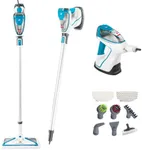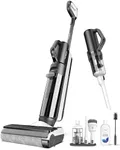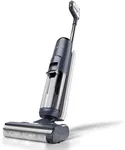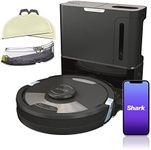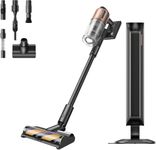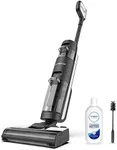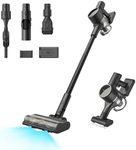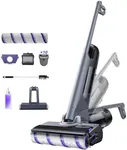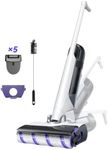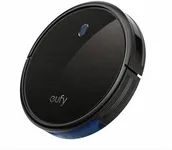Buying Guide for the Best Floor Cleaner Machine
Choosing the right floor cleaner machine can make your cleaning tasks much easier and more effective. The best machine for you depends on the type of floors you have, the size of the area you need to clean, and how often you plan to use it. Understanding the key features and specifications will help you find a machine that matches your needs and ensures your floors stay spotless with minimal effort.Type of Floor CleanerFloor cleaner machines come in several types, such as upright scrubbers, automatic floor scrubbers, steam cleaners, and sweepers. The type refers to how the machine operates and what cleaning method it uses. Upright scrubbers are good for deep cleaning hard floors, while steam cleaners use hot steam to sanitize surfaces. Sweepers are best for picking up dust and debris. To choose the right type, consider the kind of dirt you usually deal with and the floor surfaces in your space. For example, if you have mostly tile or hardwood, a steam cleaner or scrubber might be best, while for large, dusty areas, a sweeper could be more efficient.
Cleaning Path WidthThe cleaning path width is the width of the area the machine can clean in a single pass. This is important because a wider cleaning path means you can cover more ground quickly, which is useful for large spaces. Cleaning path widths can range from compact (about 10-14 inches) for small rooms or tight spaces, to wide (over 20 inches) for big, open areas. If you have a small home or lots of furniture, a narrower path is easier to maneuver. For large, open spaces like halls or commercial areas, a wider path saves time.
Water Tank CapacityWater tank capacity refers to how much water (and sometimes cleaning solution) the machine can hold. A larger tank means you can clean for longer without stopping to refill, which is helpful for big jobs. Small tanks (under 1 liter) are suitable for quick cleanups or small rooms, while larger tanks (over 3 liters) are better for extensive cleaning sessions. If you have a large area to clean or want to avoid frequent refills, look for a machine with a bigger tank. For smaller spaces or lighter cleaning, a compact tank is usually enough.
Power SourceFloor cleaner machines can be powered by electricity (corded), batteries (cordless), or sometimes even manually. Corded machines offer continuous power but limit your movement to the length of the cord. Cordless machines give you more freedom to move around but need to be recharged and may have limited run time. Manual machines require no power but need more physical effort. If you need to clean large areas without worrying about outlets, cordless is convenient. For uninterrupted cleaning, corded is best. Choose based on your cleaning habits and the layout of your space.
Brush Type and SpeedThe brush type and speed determine how well the machine can scrub and lift dirt from your floors. Some machines have soft brushes for delicate surfaces, while others have stiff brushes for tough grime. Brush speed (measured in revolutions per minute, or RPM) affects how aggressively the machine cleans. Lower speeds are gentle and good for everyday cleaning, while higher speeds are better for deep cleaning. If you have sensitive floors, look for soft brushes and lower speeds. For heavy-duty cleaning, stiffer brushes and higher speeds are more effective.
Noise LevelNoise level is how loud the machine is when operating, usually measured in decibels (dB). Quieter machines are more comfortable to use, especially in homes or offices where noise can be disruptive. Noise levels can range from about 60 dB (quiet) to over 80 dB (loud). If you plan to use the machine in a shared or quiet environment, look for a model with a lower noise rating. For industrial or less noise-sensitive areas, this may be less important.
Weight and ManeuverabilityThe weight of the machine affects how easy it is to move and use, especially if you need to carry it up stairs or around furniture. Lighter machines are easier to handle but may have smaller tanks or less power. Heavier machines can be more stable and powerful but harder to transport. If you need to clean multiple floors or tight spaces, a lighter, more maneuverable machine is ideal. For large, open areas, a heavier machine may be more efficient.


